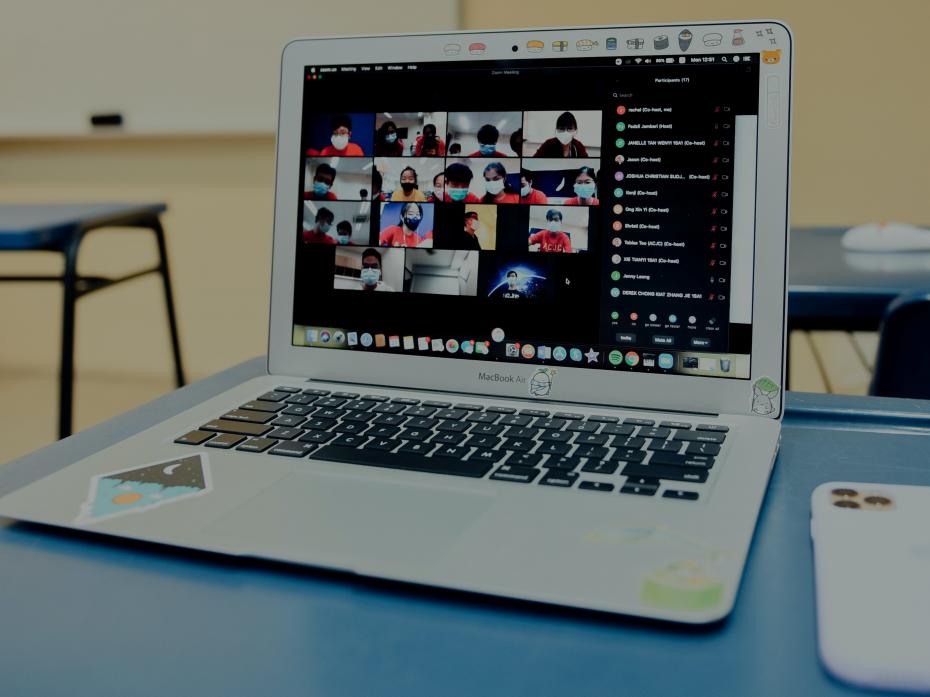“The coronavirus knows no borders” has become a common saying. International education should also know no borders, and Covid-19 should not be a barrier to growth, development and progress. Despite the pandemic’s challenges to international education, it has also created opportunities. One has been the acceleration of online education for international students at Xi’an Jiaotong-Liverpool University (XJTLU) and other institutions.
We found the elements that were crucial for this acceleration to occur were:
- Consistent revision of strategy to ensure that international students don’t suffer during isolation and to innovate where possible
- Agility and flexibility in meeting international students’ needs
- Development and full integration of new learning and teaching approaches.
Building a sense of community
Like many institutions, our students are dotted around the globe. Our most immediate and ongoing need has been to bring a sense of community to relieve their isolation. We used social media to set up student groups at the institutional, school or department and programme level.
Connecting students with the university education community is important, but it requires staff commitment to be available to answer questions, provide solutions that are often technical and lend an ear. It also requires constant and consistent updating of information on the university website and other message channels.
Students need to feel that they are heard, especially regarding how learning and teaching takes place. A full survey of the international students’ experience from spring semester last academic year informed discussions and changes in delivery and assessments for the current year.
XJTLU also opened our doors to students in China who could not return to their institutions overseas. Through existing and new educational partnerships, institutions globally have been quick to recognise credits in partner institutions as a short-term study-abroad solution, thus ensuring those students some campus experience.
Recognising different student situations
There are disadvantages for those who study online compared with their onsite peers. Online-only students cannot access on-site facilities such as libraries, learning support spaces or informal support groups; they experience time zone issues for studying, live lectures and accessing office hours; technology problems occur.
In response, XJTLU asked: “Why assess students as if these disadvantages did not exist?” This allowed the university to rethink assessment approaches, remembering that module and programme learning outcomes are what must be met, not necessarily providing the same assessment experience. Differentiated assessments have enabled students to demonstrate their understanding in a manner that considers different learning situations.
Choosing and using the right technology
Choosing the right technology for your individual situation is important. XJTLU quickly selected Mediasite and BigBlueButton to provide both synchronous and asynchronous teaching options. To accommodate international students’ individual situations, this flexibility is important.
With a flexible hybrid approach, live sessions are also recorded and posted on the Moodle-based virtual learning environment so that students can access lectures and seminars at will.
To ensure the effective use of technology, maintain the student experience as much as possible and ensure quality assurance standards are met, teacher training also needs to change focus.
Educators need training not only in how to use the technology in practical terms, but also in how to use it effectively to enhance student learning: recording bite-sized lectures, flipping the classroom, creating assessments that better suit the technology, and using chatboards and forums rather than traditional office hours and tutorials. We also explain to students that online study will help them acquire soft skills that they will need in the virtual workplace.
Technology has also been important in maintaining a presence in the student recruitment market, highlighting through virtual fairs that the university is open for business.
Using immersive technology, we invited potential students and parents to the university to meet academics, see the campus and experience being a student, all virtually. This is something that is not likely to change in the future, expanding exposure.
The XJTLU Learning Mall
During the pandemic period, the university started an exciting initiative: the XJTLU Learning Mall, an innovative learning hub and educational platform. Besides hosting our virtual learning environment, the Learning Mall provided all students with additional flexible online learning modules and courses for educational enhancement.
Staff identified what was appropriate, placing content from our global network of partners online for students to access. This May, the Learning Mall will expand to a global audience, providing short courses and training from leading educational content providers around the world in English and Chinese. All students – international or local, new or alumni, those interested in upskilling or in learning new skills – will become part of a global education network.
While Covid-19 forced rapid changes on international education, what we have learned in the process will only serve to benefit cross-border learning as we move forward.
Stuart Perrin is the associate principal of the XJTLU Entrepreneur College (Taicang) and chair of the University International Committee at Xi’an Jiaotong-Liverpool University.




comment